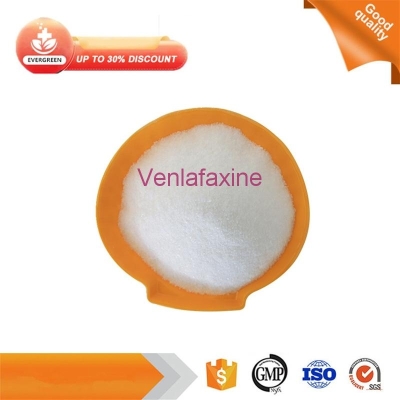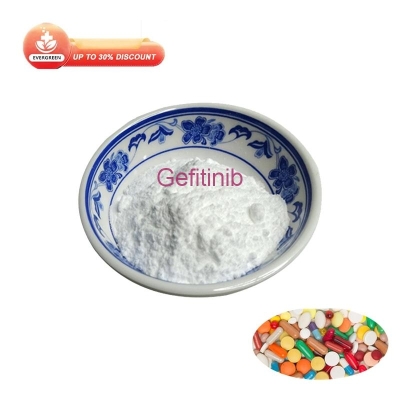-
Categories
-
Pharmaceutical Intermediates
-
Active Pharmaceutical Ingredients
-
Food Additives
- Industrial Coatings
- Agrochemicals
- Dyes and Pigments
- Surfactant
- Flavors and Fragrances
- Chemical Reagents
- Catalyst and Auxiliary
- Natural Products
- Inorganic Chemistry
-
Organic Chemistry
-
Biochemical Engineering
- Analytical Chemistry
- Cosmetic Ingredient
-
Pharmaceutical Intermediates
Promotion
ECHEMI Mall
Wholesale
Weekly Price
Exhibition
News
-
Trade Service
Aromatase inhibition is an effective endocrine therapy that blocks ectopic estrogen production in postmenopausal estrogen receptor (ER)-positive breast cancer patients, but many patients develop
drug resistance.
On November 22, 2022, Sun Yat-sen University Song Erwei and Luo Manli jointly published a report on Nature Communications The study paper "Long noncoding RNA DIO3OS induces glycolytic-dominant metabolic reprogramming to promote aromatase inhibitor resistance in breast cancer," which showed aromatase inhibitors (AI).
Drug-resistant breast tumors exhibit enhanced aerobic glycolytic signatures, with long noncoding RNA (lncRNA) DIO3OS up-regulated, which is similar to AI Treatment of breast cancer patients is associated
with poor prognosis.
Long-term estrogen deprivation induces the expression of DIO3OS in ER-positive breast tumor cells, further enhances aerobic glycolysis, and promotes estrogen-independent cell proliferation
in vitro and in vivo.
Mechanistically, DIO3OS interacts with polypyrimidine bundle-binding protein 1 (PTBP1) to stabilize lactate dehydrogenase A by protecting the integrity of its 3'UTR (LDHA) mRNA, which subsequently upregulates LDHA expression and activates glycolytic metabolism
in AI-resistant breast cancer cells.
The findings highlight the role of lncRNA in regulating key enzymes in glycolytic metabolism in response to endocrine therapy, as well as targeting DIO3OS to reverse ER-positive breast cancer AI Potential
for drug resistance.
Aerobic glycolysis, also known as the Warburg effect, is the most notable feature of
cancer energy metabolism remodeling.
Tumor cells prefer the glycolytic pathway over oxidative phosphorylation, which primarily converts glucose to lactic acid
.
In addition, glycolytic metabolites provide the necessary material for biosynthesis, giving tumor cells an advantage
in growth.
Specifically, lactate dehydrogenase A (LDHA) is responsible for converting pyruvate to lactic acid, which has been shown to promote tumor progression
by regulating angiogenesis, metastasis, treatment resistance, and chronic inflammation and immune escape.
The combination of glycolysis inhibitors with radiotherapy or chemotherapy sensitizes tumor cells to treatment-induced apoptosis, suggesting that targeting abnormal glucose metabolism may provide new strategies
for reversing therapeutic resistance in cancer.
About two-thirds of breast cancers express estrogen receptor-α (ERα), which requires endocrine therapy to inhibit estrogen signaling-dependent tumor growth
.
Aromatase inhibitors (AI) can inactivate aromatase, a restriction enzyme that converts androgens into estrogen, thereby reducing estrogen levels and inhibiting the proliferation
of ER-positive breast cancer cells.
In postmenopausal patients, third-generation AI drugs (letrozole, anastrozole, and exemestane) have become first-line adjuvant therapy for ER-positive breast tumors, and their therapeutic effect is superior to tamoxifen
, once the classic endocrine drug for breast cancer.
However, acquired resistance to aromatase-inhibited drugs is the main cause of adjuvant endocrine therapy failure, so deciphering the molecular mechanism of AI resistance in ER-positive breast cancer is critical and urgent
.
In the current study, most of the findings focused on dysregulation of ER and other growth factor receptor signaling, and metabolic reprogramming, one of the key hallmarks of malignancy, is rarely discussed
when acquiring AI resistance.
Long noncoding RNAs (LncRNAs) are transcripts longer than 200 nucleotides that lack protein-coding capabilities
.
To date, many studies have revealed lncRNAs as key molecules that regulate gene expression at the transcriptional, post-transcriptional and epigenetic levels, thus influencing multiple steps
in tumor development.
It has been reported to regulate aerobic glycolysis
in cancer cells.
Previous studies have demonstrated that exosome lncRNA HISLA can enhance aerobic glycolysis and induce chemoresistance in breast cancer cells
.
Nevertheless, the role of lncRNA in AI-resistant ER-positive breast cancer glycolytic alterations and its mechanism need to be further elucidated
.
In this work, lncRNA expression profiles in clinical samples of patients with ER-positive breast cancer treated by AI were compared and determined that DIO3OS was a reprogramming AI An important RNA regulator of glucose metabolism in drug-resistant breast tumors.
Diagram of the article pattern (image from Nature Communications).
Targeting cancer metabolism has become an important strategy
to improve anti-cancer therapy.
As the expression of DIO3OS increases in breast cancer cells experiencing AI resistance, abnormal activation of the DIO3OS/PTBP1/LDHA glycolysis cascade may confer metabolic adaptations on tumor cells that enable them to move from AI Survive the estrogen deficiency caused
.
Future translational research will focus on exploring effective ways for specific DIO3OS knockdowns to re-sensitize
breast cancer cells to AI treatments.
Informational message:
https://doi.
org/10.
1038/s41467-022-34702-x







